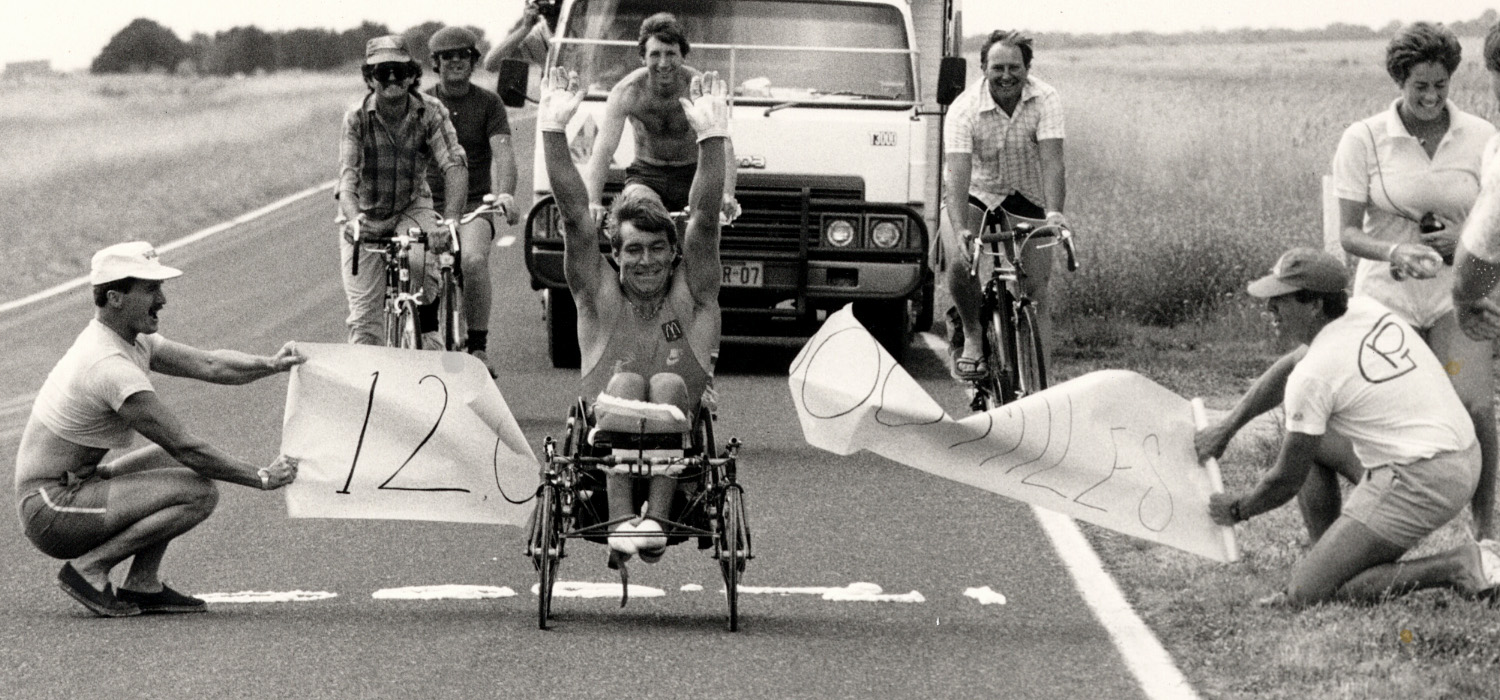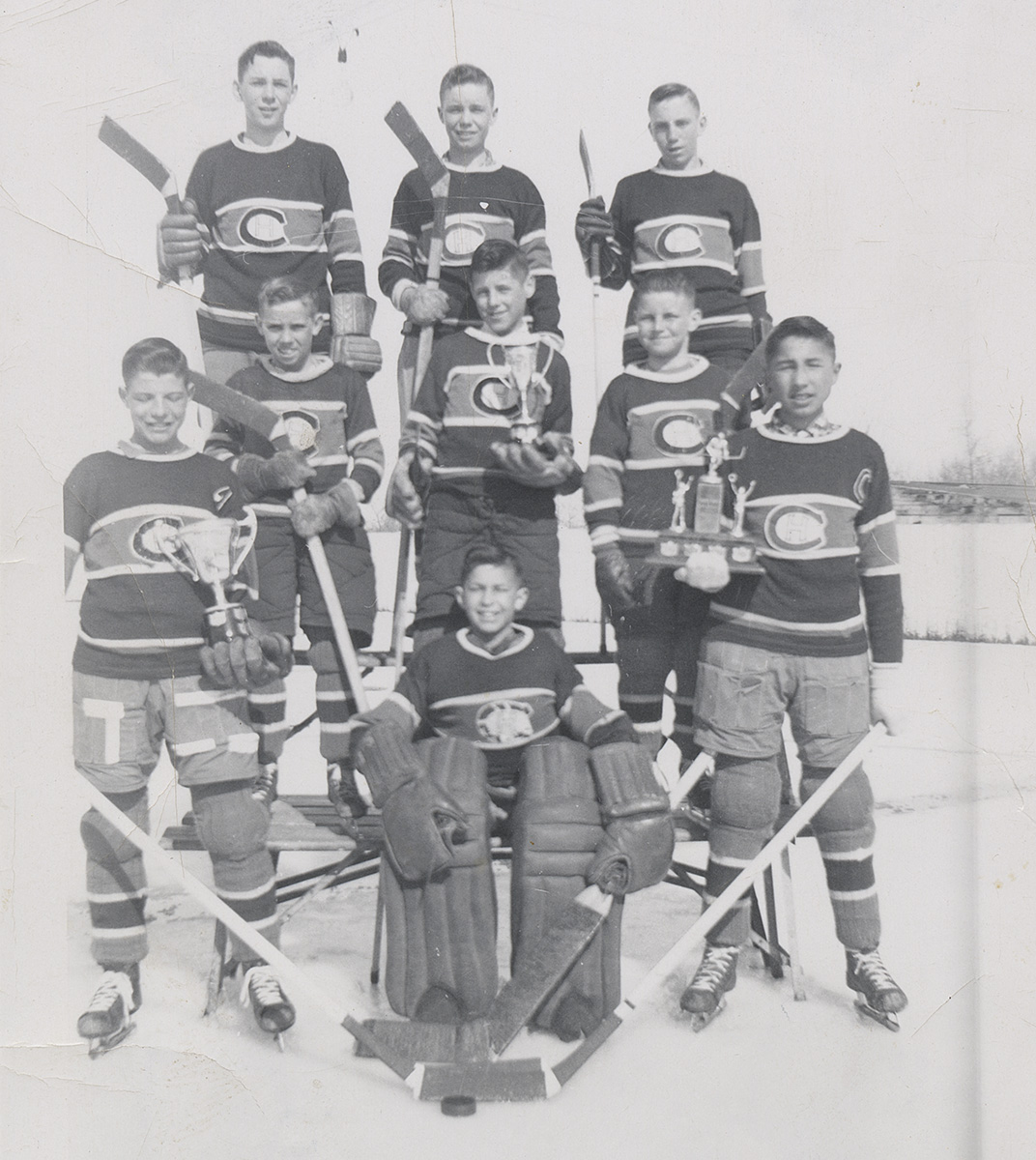About Research and Collections
Our research is driven by curiosity and a desire to rethink Canada. We develop new ways of understanding our world and create dialogue with people in Canada and Indigenous communities. Through our research and collections, we lead the national conversation about Canadian history and culture. Our collection documents Canadian human history from time immemorial to the present, focusing on three key areas:
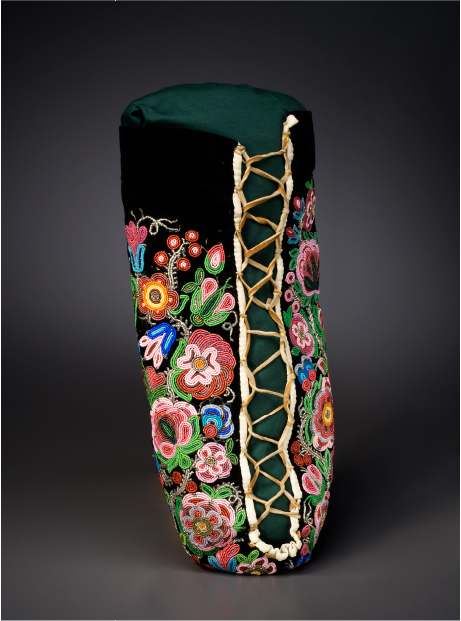
VI-I-5 – Moss Bag. This elaborately beaded moss bag baby carrier was made around 1900 by a Gwich’in artisan.
Indigenous Peoples and Cultures
Working collaboratively with Indigenous peoples and communities, curators undertake research to advance and support Indigenous rights. This work advances UNDRIP Article 11.1, through the co-development of projects with Indigenous groups to practice and revitalize their cultural traditions and customs.
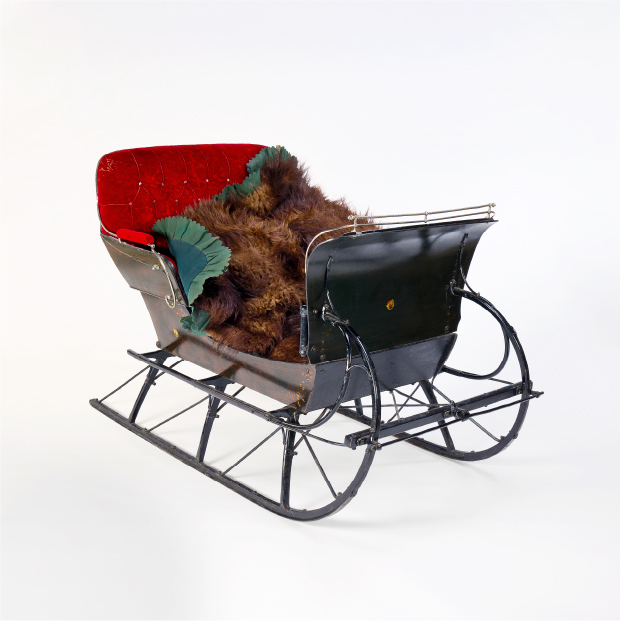
2010.233.2 – Sleigh. This black wooden sleigh was made around 1896 by the McLaughlin Carriage Company in Oshawa, Ontario. (IMG2013-0142-0031-Dm)
Canadian History
Our team brings Canadian history to a contemporary audience. Using the Museum’s collections and archives, we document the links between past and present. Through acquisitions and oral history, our work contributes to building a museum of the future.

95-26 a – Guitar. This guitar was played by Randy Bachman in the 1970s with his band Bachman-Turner Overdrive, famous for such hits as “Taking Care of Business” and “These Eyes.”
Popular and Contemporary Culture
We have a rich legacy of collecting and documenting vernacular, popular and contemporary culture to better understand the living traditions, diverse cultural practices, and creative expression of people in Canada, both past and present.
What’s new
Explore highlights from our extensive collections of objects and archival material through curated searches created by Museum staff.
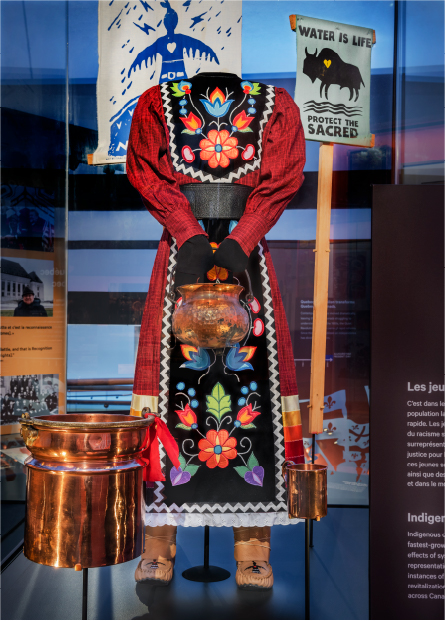
2022.94 – The Autumn Peltier Collection. This collection can be viewed in Gallery 3 of the Canadian History Hall. (IMG2023-0024-0006-Dm)
The Autumn Peltier Collection
Autumn Peltier is an international Indigenous youth activist known for her advocacy for Indigenous rights and water rights. She is from Wiikwemkoong Unceded Territory on Manitoulin Island, Autumn was inspired to fight for safe drinking water after seeing a boil water advisory in another First Nations community. Peltier has been honoured with numerous awards for her activism. She was one of three finalists for the International Children’s Peace Prize in 2022 — the first time a Canadian has ever made this final stage.

2021.126.3064 – Bicycle. This red and white bicycle was used by Olympian Clara Hughes in the 1996 Summer Games in Atlanta, Georgia. (IMG2023-0236-0055-Dm)
The Order of Sport Collection
The Order of Sport Collection tells the story of athletes, teams, and sporting events, representing more than 100 years of Canadian sport history. While memories of great victories inspire many, this collection reveals the connections between sport and the complexities of our shared past.
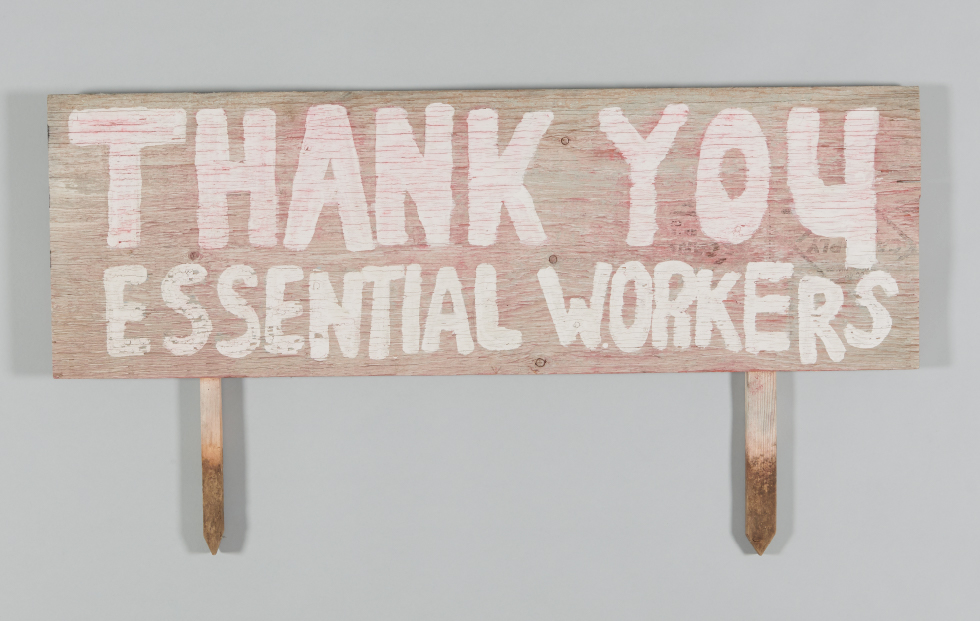
2021.93.1 – Lawn Sign. This lawn sign was made by a family in Ottawa to thank front-line workers during the COVID-19 pandemic. (IMG2023-0147-0089-Dm)
COVID-19 Collection
In March 2020, when COVID-19 was identified as circulating in Canada, stay-at-home measures forced people in Canada to adjust to new realities. The Museum launched a collecting initiative to gather material reflecting the diverse experiences of Canadians and Indigenous Peoples focusing on policies, the transformation of physical spaces, and the impact of the pandemic on cultural expression.

